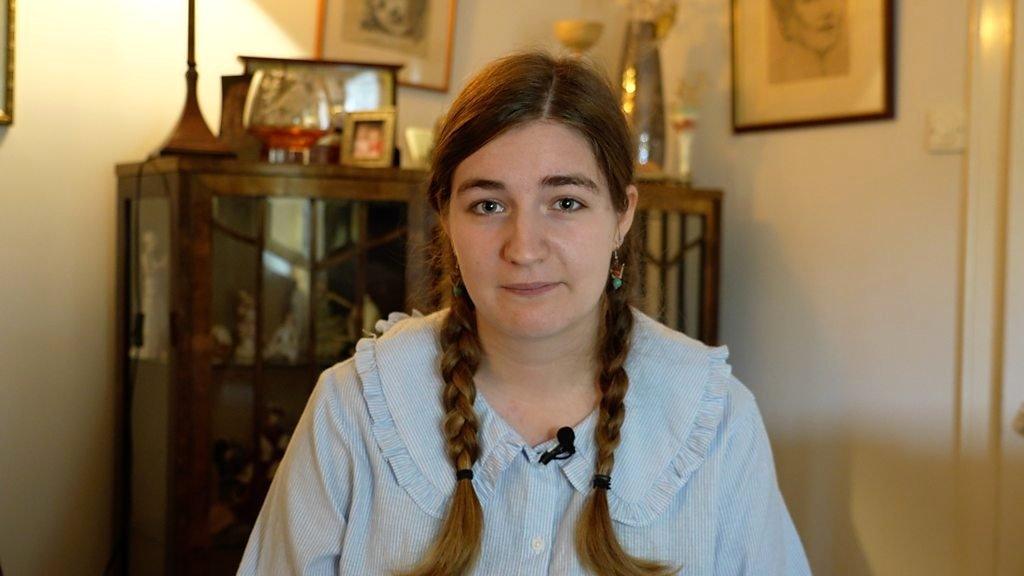Dyscalculia: Do Rishi Sunak's maths plans add up for everyone?
- Published
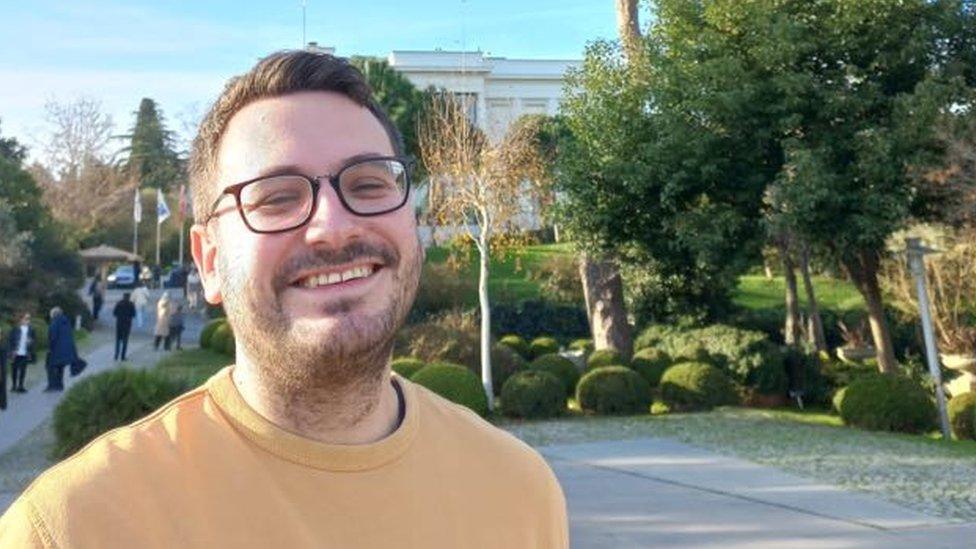
Peter Cherry says he struggled to find work in the UK due to his dyscalculia
The country has to get better at maths, Rishi Sunak told teachers and students in north London this week.
Changing an "anti-maths mindset" was key to boosting long-term economic growth he said, and poor numeracy could be costing "tens of billions a year".
For Peter Cherry, who struggled with maths at school, the implication of the PM's message was that people who are not good at maths should feel "ashamed".
The 35-year-old from Sussex is among the 6% of people in the UK with dyscalculia, a learning difficulty which makes it harder to use and understand maths.
National Numeracy, external, an organisation focused on adult and child numeracy, says the condition can make it harder for people to recognise numbers, place things in order, and learn sequences.
Among Mr Sunak's proposals is the aim for students to continue maths education up to 18 in England.
He plans to ask mathematicians and business people to review the "core maths content" taught in schools, and consider a new maths qualification.
Struggling for work
Mr Cherry excelled at school in Horsham, in West Sussex, but struggled with maths, taking classes in his school's special education centre.
While he failed maths GCSE multiple times, he received funding for a PhD in comparative literature with the University of Edinburgh, and speaks Turkish and French.
After several years working in Turkey, he spent some of 2021 and 2022 on universal credit in the UK, struggling to find work because he did not have a GCSE in maths.
In his speech, the prime minister said the value of maths was often overlooked and poor attainment was regarded as "socially acceptable".
"The implication really strongly was that if you are not good at maths for some reason, this is something you should be ashamed of," said Peter about the PM's message.
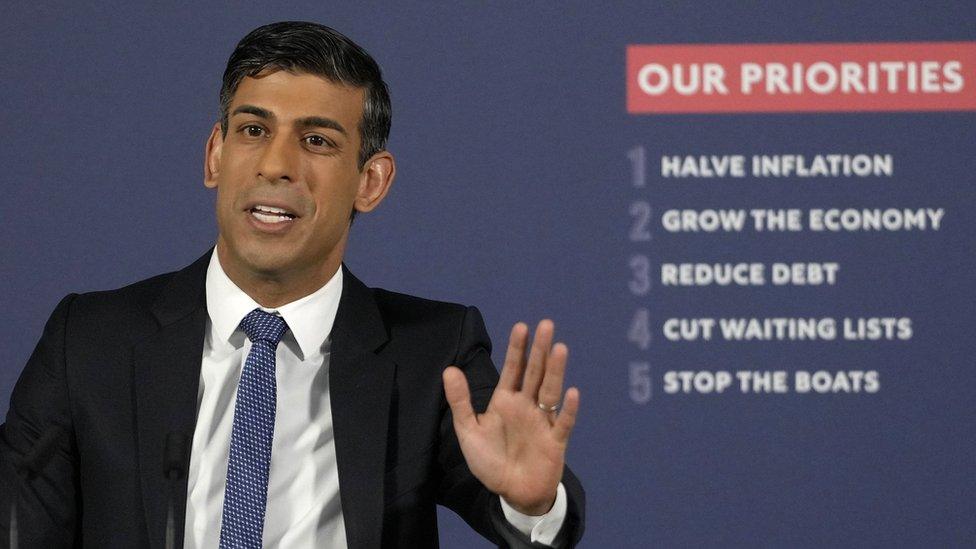
Rishi Sunak says improving maths is vital to boost economic growth
"This is a deeply, profoundly offensive message to be sending to someone like me."
He said no-one was arguing with the notion that maths education should be improved, but he did not think Mr Sunak knew what dyscalculia was.
Mr Cherry, who now volunteers with the Dyscalculia Network and sits on the board of its adult advisory group, said it had been contacted by concerned parents following the announcement.
"[If I was in school now] this would have been the end of me. I would have just felt that my future was over," he said.
"I think we really need a national conversation on dyscalculia."
The BBC has asked the Cabinet Office to comment.
For Alice Tarbuck, who has three humanities degrees, her first thought after the announcement was that it felt like a push by the government to "flatten the desired skillset of our young people".
The 35-year-old writer and academic from Edinburgh was diagnosed with dyscalculia at school when it became clear she was performing worse in maths than other subjects.
Dyscalculia for her meant "numbers do not fall into patterns" the way they did for others, she said.
However her diagnosis freed her from feelings of shame, she said, and the sense "maybe I was secretly stupid".
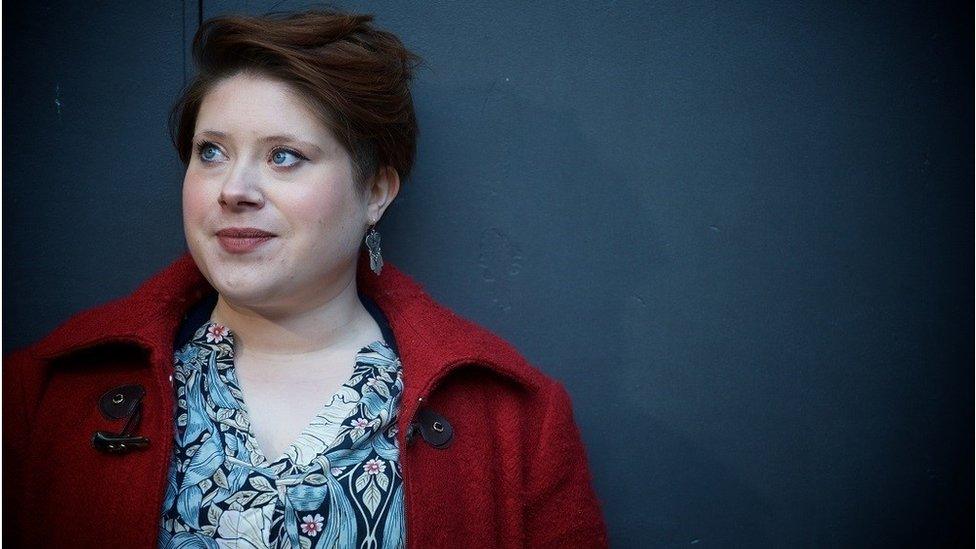
Alice Tarbuck questions whether compulsory maths education to 18 is a good idea
Ms Tarbuck dropped maths as soon as she could at Scottish standard level (which was the equivalent to GCSE level). Had she been made to continue maths to 18, she believes it would have "considerably reduced her chances" of getting the grades needed for her university of choice.
While she supports people being educated in practical applications for maths, for her the idea of making it compulsory to 18 is nonsense.
She believes the government's plans are an "attempt to woo voters of a certain age who think everyone should still learn Latin by rote and stand up when teachers come into the classroom".
Personal finance expert Iona Bain was also diagnosed with the condition while at school.
She was educated in the Scottish system, and currently lives in London.
She said she was lucky to get the right support, but some pupils might be trying "really, really hard" to do their "absolute best in maths", but something is still not clicking.
"I was very keen to drop maths as soon as I could," she said.
"I continued to have this very difficult relationship with maths for many years... [struggling] with numbers in the same way some people struggle with words. I would like to see it acknowledged in a similar way."
A financial expert on BBC One's Morning Live, much of Ms Bain's work involves writing and broadcasting about money - which may seem an unlikely career choice for someone with dyscalculia.
"Money is not just about doing the sums," she said.
"You need to understand your habits and psychology, all of these things that are really fascinating."
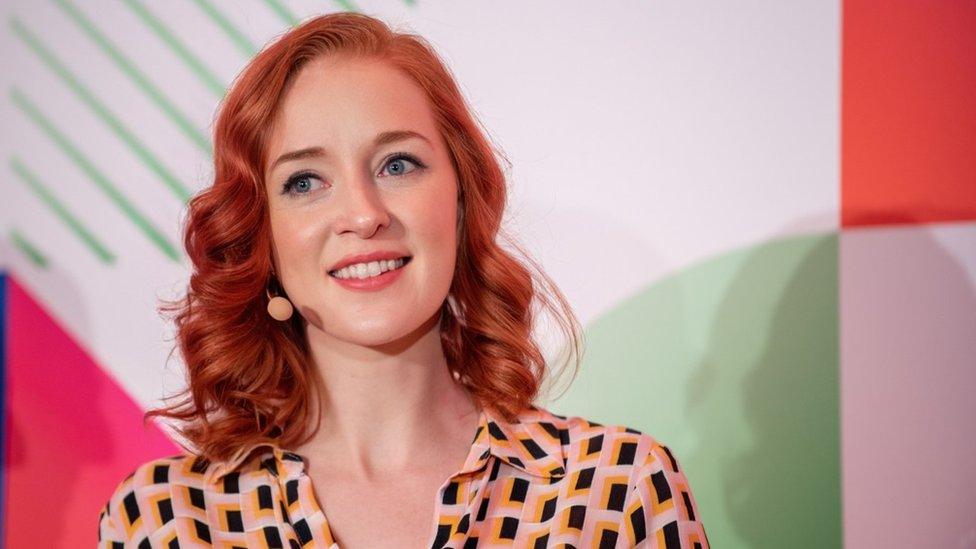
Iona Bain believes people in the UK could be more "competent with numbers"
She does agree that "as a country we need to be more competent with numbers".
"I think if we start setting goals and benchmarks that are unrealistic, there is a risk that you compound the problem and discourage young people," she said.
'The intention is good'
"It's a great idea that everybody should leave school feeling confident with maths," said Paul Milner, an expert in dyscalculia with National Numeracy.
This did not necessarily mean continuing a GSCE-type level of teaching until 18, he added.
The government's intention was good, he said, and it would be "brilliant" if it led to the right support being put in place for people.
Dyscalculia: ‘Numbers look like a foreign language to me’
"It is all different wiring, and different strengths and weaknesses," he said.
While dyscalculia was an issue for many, having confidence with numbers was a wider issue that affected about a third of the population, said Mr Milner.
"The big problem is we don't talk about it, because people who struggle don't talk about it.
"They leave school and say 'oh, I'm not a maths person'. And then people go on and find a coping mechanism."
For Ms Bain the key could be looking at maths in a more practical way, and how it applies to finance.
"I have lost count of the number of people who say they wish they had learnt about mortgages rather than trigonometry," she said.
"There are things you can do to improve your situation. It does not mean you are doomed to be completely chaotic with your money. There is still a lot of misunderstanding about dyscalculia."
Related topics
- Published17 April 2023
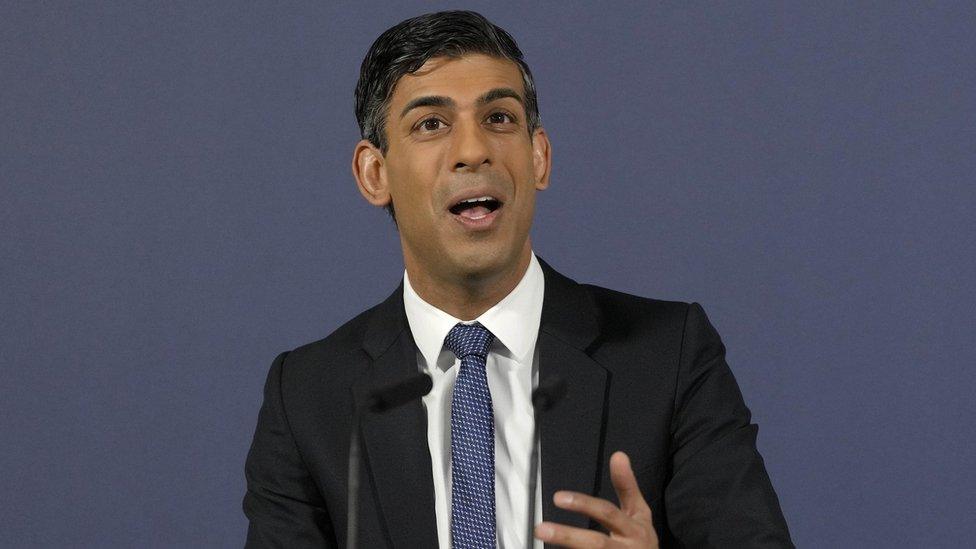
- Published4 November 2022
